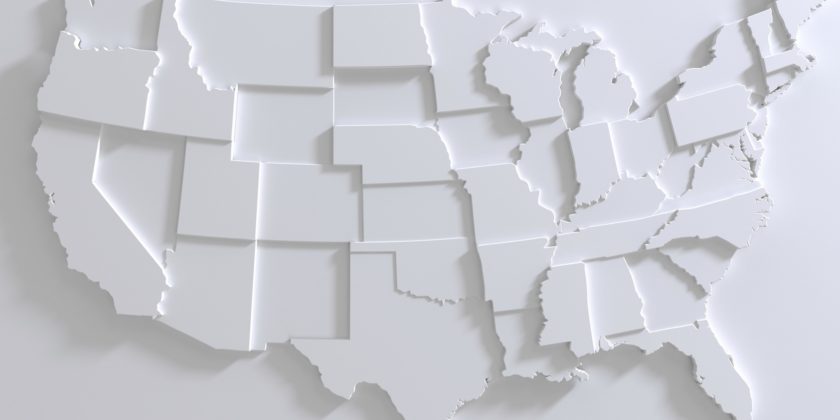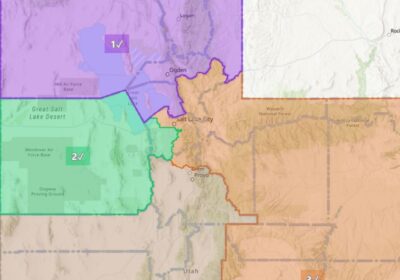Gov. Greg Abbott put mid-decade redistricting on the agenda after Trump suggested a redraw and after a Trump-aligned DOJ letter questioned the legality of four existing districts. Texas’s special session, which convened on July 21 in part to redraw the congressional map, set off a chain reaction among states looking to counter what some say is an “unusual move,” although not unprecedented. On July 30, House Republicans released a draft map that could flip the state’s delegation from 25-13 to roughly 30-8 in the GOP’s favor. Texas Democrats have fled the state to deny their Republican counterparts a quorum, and as a result, several states have openly pondered their own mid-decade redistricting either to counter Texas or in support of Republicans.
Democratic-led states weighing “counter-maps”
California: Gov. Gavin Newsom says he’ll ask voters in a special November election to approve a new congressional map and “pause” the CA Citizens Redistricting Commission.
New York: Gov. Kathy Hochul and legislative leaders are “looking at all options,” including a constitutional amendment to allow a mid-cycle redraw.
Illinois: Gov. J.B. Pritzker told reporters a pro-Democratic redraw is “on the table” if Texas proceeds.
Maryland: Del. David Moon (D) plans a bill that would automatically reopen Maryland’s map if any other state redraws mid-cycle; Senate leaders say “nothing is off the table.”
New Jersey: Governor Phil Murphy has stated that he will not rule out mid-decade redistricting, despite the state constitution explicitly prohibiting it.
GOP-controlled states considering Pro-Republican redraws
Florida: Gov. Ron DeSantis says Florida should “consider” a mid-cycle overhaul because of rapid growth causing “malapportionment” in current districts.
Missouri: Gov. Mike Kehoe and Senate leaders signal a special session is “likely” to seek a 7-1 GOP map targeting Rep. Emanuel Cleaver’s seat.
Indiana: Vice President J.D. Vance met with Gov. Mike Braun as the Trump White House urged a redraw. Braun hasn’t ruled out a special session, but it is not clear if a map redraw would add any seats to the U.S. House.
Other Considerations
Ohio is scheduled for a mid-decade redraw due to unrelated reasons. The results of the map redraw could impact the final electoral map for 2026. Two lawsuits filed July 8-9 by a bipartisan business coalition and the Elias Law Group ask a three-judge panel (created by a 2011 GOP statute) to strike down Wisconsin’s 6-2 GOP congressional map as an “anti-competitive gerrymander.” If the panel rules for plaintiffs, the liberal-leaning state Supreme Court would have final say before 2026.
Bottom line: Texas has opened the door, but every potential state redraw faces its own legal guardrails, ballot-measure requirements on the left, “fair district” clauses or court risk on the right, and, in Wisconsin’s case, a brand-new judicial pathway. Whether any of these states actually redraw before the 2026 midterms will turn on those constraints as much as on raw political appetite.
Find us on:





